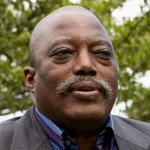
Tinubu’s 65th Independence Broadcast Promises A ‘New Dawn,’ But Nigerians See Only Darkness And Despair

In President Bola Tinubu’s national broadcast to mark Nigeria’s 65th Independence Anniversary on October 1, 2025, he painted a picture of a nation poised for economic recovery and social renewal. He spoke of reforms yielding results, inflation declining, the naira stabilising, and young people soaring on the wings of new “government initiatives.”
However, despite the optimistic delusion of the president’s speech, many Nigerians continue to grapple with the harsh realities of poverty, hunger, insecurity, and rising inequality. The facts between Tinubu’s broadcast and everyday life across the country raise pressing questions about the gap between government rhetoric and lived experience.
In his address, Tinubu boasted of a fast-recovering economy, citing a GDP growth rate of 4.23 per cent in the second quarter of 2025, inflation falling to 20.12 per cent, and record-breaking non-oil revenue mobilisation. He described Nigeria as “now a net exporter” with diversified trade, growing foreign reserves, and a stabilised currency.
However, reality paints a horrifying picture. For many Nigerians, food prices remain incredibly high, with staples such as rice, maize, and garri still out of reach for millions of households. The so-called decline in inflation offers no comfort when salary growth remains stagnant, unemployment continues to rise, and informal jobs dominate the labour market.
While the government touts a trade surplus and increased oil production, ordinary citizens are more concerned with survival, coping with the high cost of transportation, epileptic power supply, and dilapidated or non-existent infrastructure.
On security, Tinubu praised the military’s gallantry, claiming that Nigeria is winning the war against terrorism, banditry, and violent crime. He insisted that peace had returned to hundreds of liberated communities in the North-East and North-West.
Yet, only days before his speech, reports from several states across the country revealed deadly attacks by armed men. In Kwara State alone, armed militia men killed about 12 people in the Oke-Ode community, including the Baale of Ogbayo, vigilante men and hunters.
In the Federal Capital Territory, a tragic incident further showing the severity of the security crisis, Somtochukwu Christelle Maduagwu, a 29-year-old News Anchor, Reporter, and Producer for ARISE News Channel, as well as a lawyer, lost her life following an armed robbery at her residence in Katampe, Abuja, on Monday, September 29, 2025. While Kidnappings remain high across highways and rural settlements, insurgent splinters in the North-East continue to harass vulnerable communities.
The president’s assertion of restored peace contrasts starkly with the reality of families still displaced, farmers unable to access their fields, and entire regions living under siege.
The president also highlighted the regime’s interventions for young Nigerians, from student loans under NELFUND to consumer credit schemes like Credicorp and YouthCred. He pledged more opportunities through the iDICE programme, assuring the youth of a brighter future.
However, these schemes remain inaccessible to the majority of young Nigerians. University students continue to face poor facilities, frequent strikes, and high costs of living, while graduate unemployment remains a ticking time bomb. For millions of jobless youths across the country, these credit initiatives are abstract promises rather than life-changing realities.
Tinubu admitted that reforms, such as the removal of subsidies and unification of the exchange rate, have brought “temporary pains.” But he insisted they were necessary to avoid economic collapse.
On the streets, however, Nigerians continue to feel the unrelenting weight of those reforms. Transport fares have doubled in many states, cooking gas prices have skyrocketed, and housing costs are unaffordable for most. Families are spending an increasing share of their incomes on food and utilities, often forced to cut back on education and healthcare.
It is not the statistics that matter to us; it is the price of food and fuel,” said Hauwa Ibrahim, a mother of four in Kano. “We hear the president talk about growth, but in our homes, we only see hunger.”
Hope and Disillusionment
Tinubu’s broadcast closed with a rallying call: “Let us believe, once more, in the boundless potential of our great nation.” While the regime insists the foundation for growth has been laid, public trust remains eroded by corruption, inefficiency, and widening inequality.
Tinubu’s speech reflects a familiar paradox: a government projecting optimism while citizens endure daily struggles. Tinubu may claim that the “dawn of a new, prosperous, self-reliant Nigeria is here,” but for many Nigerians, that dawn is still shrouded in darkness and uncertainty.
About The Author
Related Articles
AES Condemns Niamey Airport Attack, Warns of Coordinated Destabilisation
The Alliance of Sahel States has strongly condemned the armed attack on...
ByWest Africa WeeklyFebruary 2, 2026Mali Cedes Strategic Land to Guinea to Deepen Trade Cooperation
Mali has approved the transfer of a strategic parcel of land to...
ByWest Africa WeeklyFebruary 2, 2026Senegal to Appeal CAF Sanctions After AFCON Final Controversy
Senegal has announced plans to formally appeal the sanctions imposed by the...
ByWest Africa WeeklyFebruary 2, 2026Burkina Faso Takes Legal Step Toward Nuclear Energy Development
Burkina Faso has voted to join the Vienna Convention on Civil Liability...
ByWest Africa WeeklyFebruary 2, 2026












Leave a comment